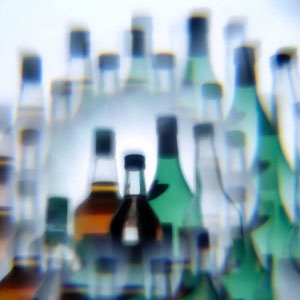
Molly was born with foetal alcohol syndrome (FAS) and at just two weeks old she spent several days in a drunken coma in Karl Bremer Hospital in Bellville.
The infant was abandoned and when she was found, she had alcohol in her bottle.
Now more than 15 years later, she has defied the odds.
A sober look at FAS
FAS is a mental disability and is the most severe of those in the Fetal alcohol spectrum disorder (FASD). It is thought that FAS affects an estimated three million people in South Africa according to the Foundation for Alcohol Related Research (FARR).
Read: How drinking devastates the Western Cape
To raise awareness 9 September is annually commemorated around the globe as International FASD Day.
In South Africa, FARR has been at the forefront of research, awareness and prevention in this regard and has gained world-wide recognition for its work.
However, a lot still needs to be done, says FARR chief executive Leana Olivier.
Debunking the myths
“There are still many myths around FASD. Some people still believe, for instance, that a woman must be an alcoholic to give birth to a child with FASD. The truth is, however, that no amount of alcohol is safe during pregnancy.”
A child with FAS can suffer from various health conditions.
"Apart from damage to the eyes, ears and heart, this may also include brain damage, which results in lifelong problems such as learning disabilities, interpersonal relationship problems, developmental disabilities such as fine motor development, coordination, arithmetic and cause and effect reasoning.
In addition, most of these children have attention and hyperactivity problems,” she says.
Alarming FASD stats
Looking at statistics makes it abundantly clear why International FASD day is essential in raising awareness on this serious issue.
FARR has completed nine studies in four provinces recording the highest reported FAS rates in the world. The Department of Health estimates the average FAS prevalence in South Africa at 6%.
Read: Foetal Alcohol Syndrome highest in SA
“Compared to the next highest rate in the world, namely 1% in the USA, this rate is alarmingly high”, says FARR founder Professor Denis Viljoen.
“A child born with FAS has an intellectual disability, learning and psycho-social challenges for the rest of the life. This epidemic is 100% preventable. Our plea to pregnant women is therefore not to use alcohol during pregnancy. Rather be safe than sorry.”
No one knows this better than Molly's foster mom Lynn from Cape Town’s northern suburbs.
Born drunk
“Molly’s biological mother drank while pregnant so the little girl was born drunk. She was given alcohol in her bottle and Molly spent a few weeks in hospital before she came to me,” says Lynn.
Lynn watched helplessly as the tiny baby, barely bigger than her husband’s hand, shook violently and screamed as she went through withdrawal.
“There’s no medication to give, nothing we could do but hold her and comfort her as the tremors shook her little body.”
Infographic: Alcohol: the good, bad and ugly
Doctors said she would not progress past primary school because of the damage alcohol causes to a baby’s brain and body.
However, today Molly is working her way through Grade 9. She has South African colours for wrestling and with her green belt in karate she is practising hard to make it to the next level.
No to alcohol
Despite her achievements Molly still fights a daily battle, which her mom says is not to become an alcoholic.
“Molly’s mother was an alcoholic. Her brother was an alcoholic as a teenager and has since turned his life around. It is probably in her genetic make up to become an alcoholic. Even as a baby she would be drawn to the glasses with alcohol rather than those with other liquid,” she explains.
Quiz: Take this test to see if you are drinking too much
“Drinking is a choice we make. The consequences are devastating and unnecessary. Why take that chance?”
Lynn says she talks to Molly about making a different and more informed choice than that of her biological mother.
For more information go to www.farrsa.org.za or send an email to info@farrsa.org.za.
Also read:
Foetal alcohol syndrome is not just a Cape problem




 Publications
Publications
 Partners
Partners










